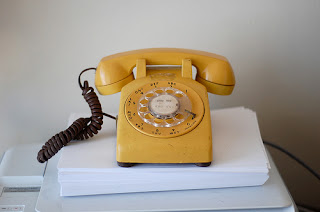Paying Taxes with your Credit Card
 It is generally accepted advice in the personal finance world that you shouldn't be getting a tax refund because if you are, you've been making an interest-free loan to Uncle Sam when you could have been the one earning interest on that money. Now there's another reason to owe tax rather than to get a refund: the ability to pay your tax bill with your credit card.
It is generally accepted advice in the personal finance world that you shouldn't be getting a tax refund because if you are, you've been making an interest-free loan to Uncle Sam when you could have been the one earning interest on that money. Now there's another reason to owe tax rather than to get a refund: the ability to pay your tax bill with your credit card.If you're responsible with credit and have a rewards credit card, owing taxes at the end of the year will allow you to accrue rewards like cash back or frequent flyer miles on your taxes. Of course, trying to pay all of your federal taxes by credit card is not a good idea, because if you haven't already paid 90% of the tax you owe by April 15, you'll have to pay a penalty. However, for that remaining 1-10%, paying your bill with your credit card could allow you to earn frequent flyer miles or get cash back...on your taxes! Some cards even offer an additional incentive. Last year, I saw this one: "Pay your taxes and earn double miles with United Chase Visa." Why not earn rewards on an expense you have to pay anyway?
Well, there are two potential drawbacks here. First, this plan is no good if you're not disciplined enough to set aside the extra money you'll need to pay your taxes in a high interest savings account so that the money will be there when its time to pay and earning interest for you until April. You don't want to go into credit card debt, or add to your existing credit card debt, to pay your taxes. That's just adding insult to injury. The second issue is that there is a convenience fee for paying with your credit card. The fee with most of the service providers who offer the convenience of letting you pay your tax bill by credit card is between 2.49 and 3.93% of the amount of your payment. This is a significant downside. If you're paying your taxes with a card that gives you 1% back on all of your purchases, you aren't really earning any cash back--you're just adding an unnecessary expense to your tax bill. You'd be better off paying by check, in this case. And speaking of unnecessary tax expenses, don't forget about that $15.95 fee to e-File if you don't qualify for Free File. There's nothing wrong with sending your return by mail. Even when you add registered mail and return receipt to the cost of a first class stamp, you're still saving about $11 over e-filing.
The ability to pay your taxes by credit card is not all bad, though. Let's say you owe $1000 and you want to pay with your United Chase Visa, which normally gives you one mile per dollar spent but is offering two miles per dollar spent to pay your taxes (I don't know if this deal is available this year, but it was last year). Because of the convenience fee, you're actually paying $24.90 to $39.30 for those 2,000 frequent flyer miles. Normally, if you wanted to buy miles from United, you'd have to pay $94.13 for 2,000 miles, so if you're looking to top off your account in order to get enough miles for a free ticket, you're actually getting the miles for about 25-33% of their usual price. If you're not topping off your account, though, there's really no reason to pay for miles when you can earn them for free with your usual travel and everyday purchases (at least, that's my philosophy on frequent flyer miles).
So should you pay your tax bill with your credit card? In most cases, no, but in certain situations, certain people can benefit from this option.
Photo by afagen
| Credit Card Interest Repayment Calculator - enter in information for your current credit cards and a pay-off schedule will be calculated for you. | Credit Balance Transfer Calculator - input your current credit card details (balance and interest rate) and the details of a card you're looking to transfer to, and calculate your potential savings. |


Comments